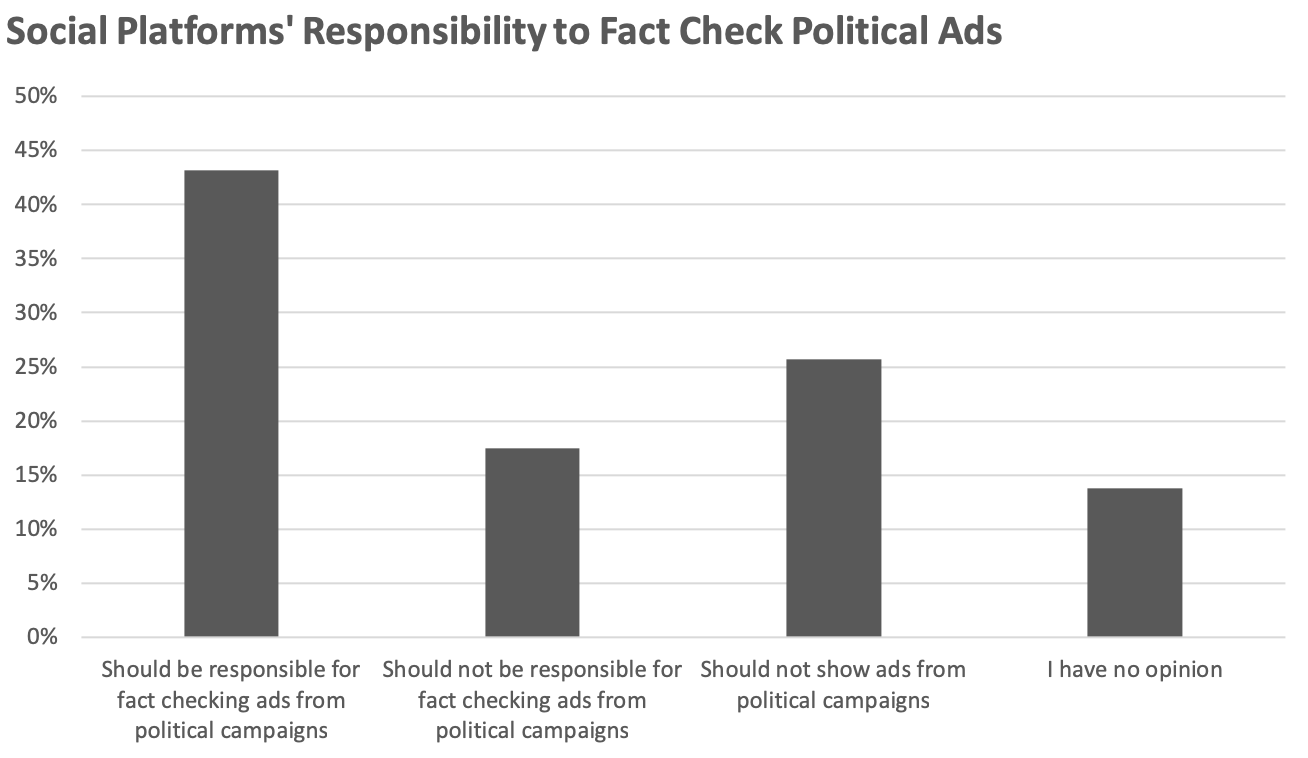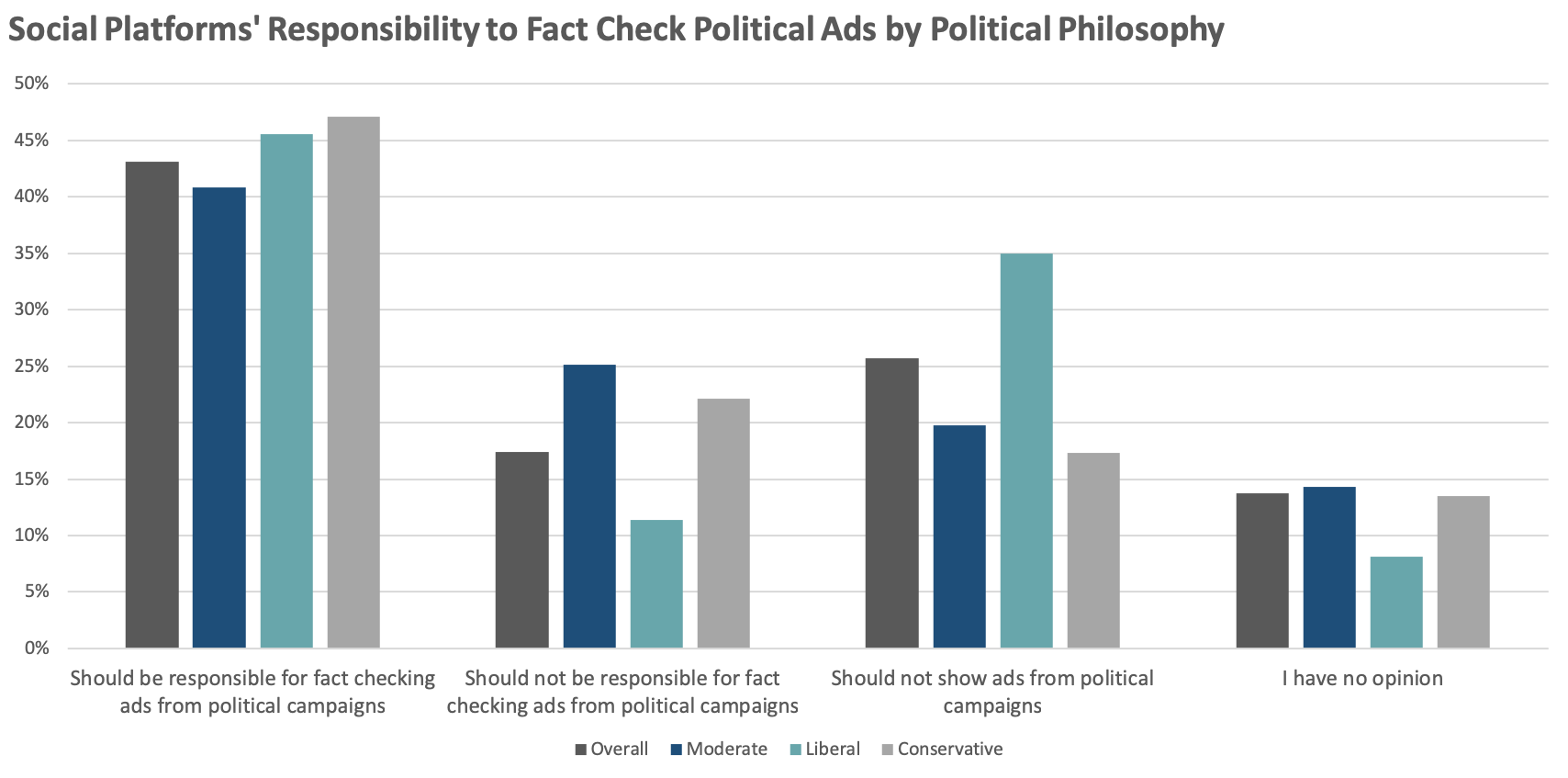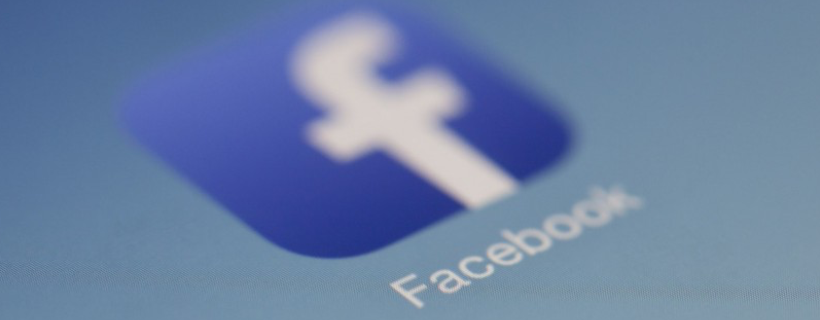That’s the latest in the debate on free speech and social media platforms. Facebook has said it will not censor ads from legitimate political candidates, meaning candidates are free to lie in their Facebook ads. Facebook’s decision has led to dissent from many followers of Facebook’s on-going discovery about how they want to handle free speech on their platform.
Facebook’s political candidate ad policy is in-line with FCC guidelines for local broadcasters (television and radio). Those FCC rules state:
“Stations are prohibited from censoring ads that are paid for or sponsored by legally qualified candidates and their authorized organizations. As a consequence, stations are protected from liability if these ads contain defamatory material.”
The Public Says Facebook Should Fact Check
While much has been said from pundits on both sides, the opinion of the public, as it so often happens, gets lost in the noise. So we asked 436 US Internet users about their opinions on Facebook’s position on political candidate advertising.
Our survey shows that a plurality of Americans believes that Facebook should fact check ads from political candidates (43%), while 26% of respondents said that Facebook shouldn’t run ads from political candidates at all. Only 17% of respondents said that Facebook should not be responsible for fact-checking ads. 14% claimed no opinion. Excluding those respondents with no opinion on the topic, 50% of respondents said Facebook should be responsible for fact-checking ads on their platform.

Within the data, men were more likely to say that Facebook should not be responsible for fact-checking compared to women (22% vs 14%), while women were slightly more likely to say Facebook should be responsible (45% vs 41%).
By party, respondents who identified as liberal or conservative were essentially equal in their desire for Facebook to fact check ads at 46% and 47% respectively. In somewhat of a surprise, moderates were more likely than the overall panel to believe that Facebook should not be responsible for fact-checking (25% vs 17%). 22% of conservatives believed that Facebook should not be responsible for fact-checking, while only 11% of liberals agreed. Liberals sided more with Facebook not running ads at all at 35% of the panel compared to 20% of moderates and 17% of conservatives.
Overall, regardless of political affiliation, the plurality stands with Facebook fact-checking.

What’s Next for Facebook?
In our view, the most tenable position for Facebook is to not allow ads from political campaigns. Absent removing political candidate ads from their platform, the only other viable option for Facebook is what they’ve chosen to do: not fact check ads. To legislate truth is an untenable position for Facebook, or any company, regardless of their resources. Truth is often fuzzy, not absolute, despite examples of false ads. We shouldn’t want any company to wield the power to determine truth.
Twitter has already eliminated all political ads on its platform, whether from campaigns or otherwise. Facebook has rightly said that disallowing ads from political candidates would have implications on access to voters by emerging candidates. It may also encourage more bombastic comments from candidates in an effort to earn shares/likes/attention through unpaid social channels. There is no free lunch regardless of the decision Facebook makes.
